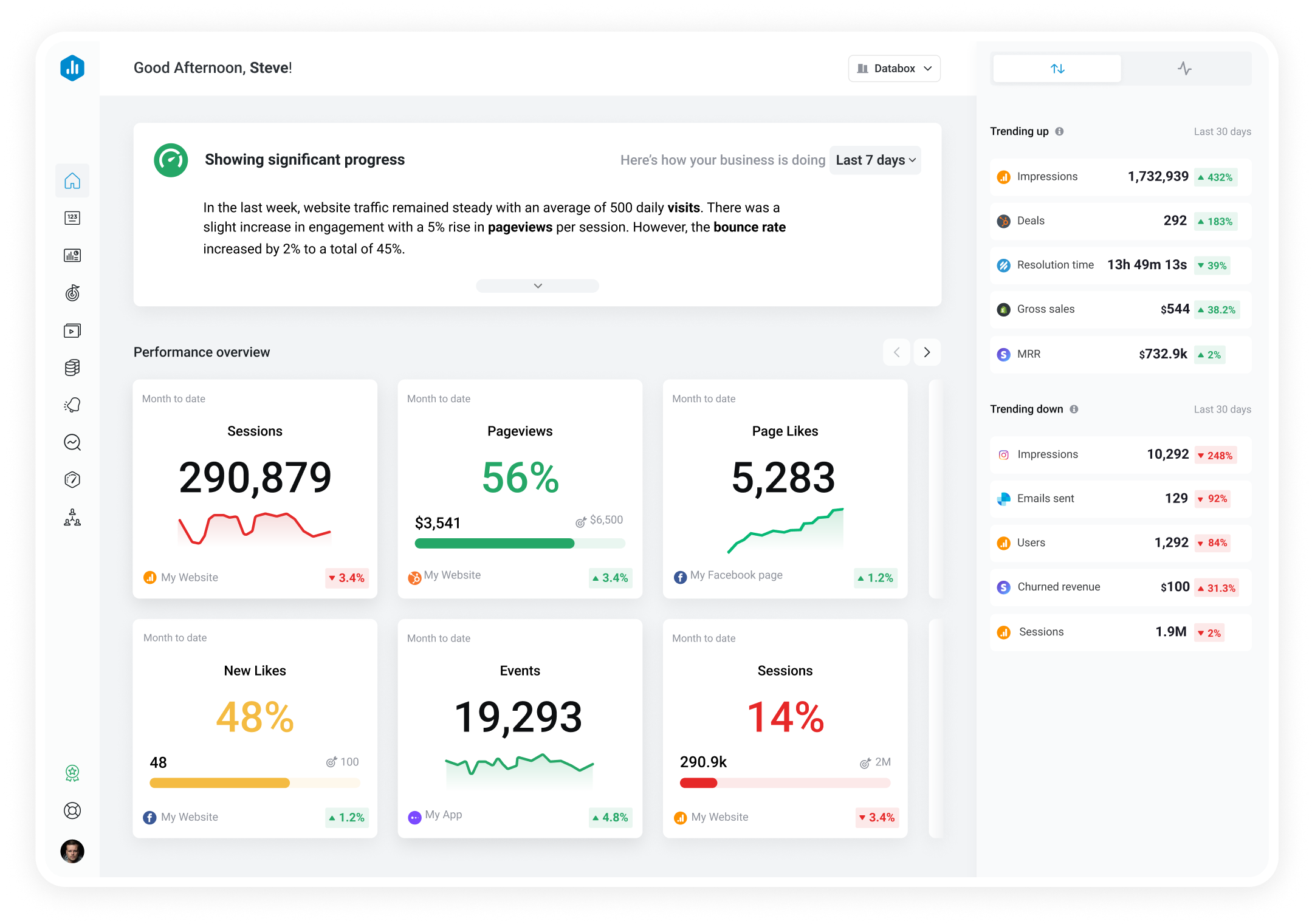Track all of your key business metrics from one screen
GET STARTED
 Shopify
Low Inventory Products
Shopify
Low Inventory Products The Low Inventory Products metric tracks the number of products in your Shopify store that have low stock levels. This helps you monitor inventory levels and avoid stockouts.
With Databox you can track all your metrics from various data sources in one place.

Used to show a simple Metric or to draw attention to one key number.
Databox is a business analytics software that allows you to track and visualize your most important metrics from any data source in one centralized platform.
To track Low Inventory Products using Databox, follow these steps:
 Goals
Goals Scorecards
Scorecards Metric Digest
Metric Digest Metric Builder
Metric Builder Data Calculations
Data Calculations Performance Screen
Performance Screen